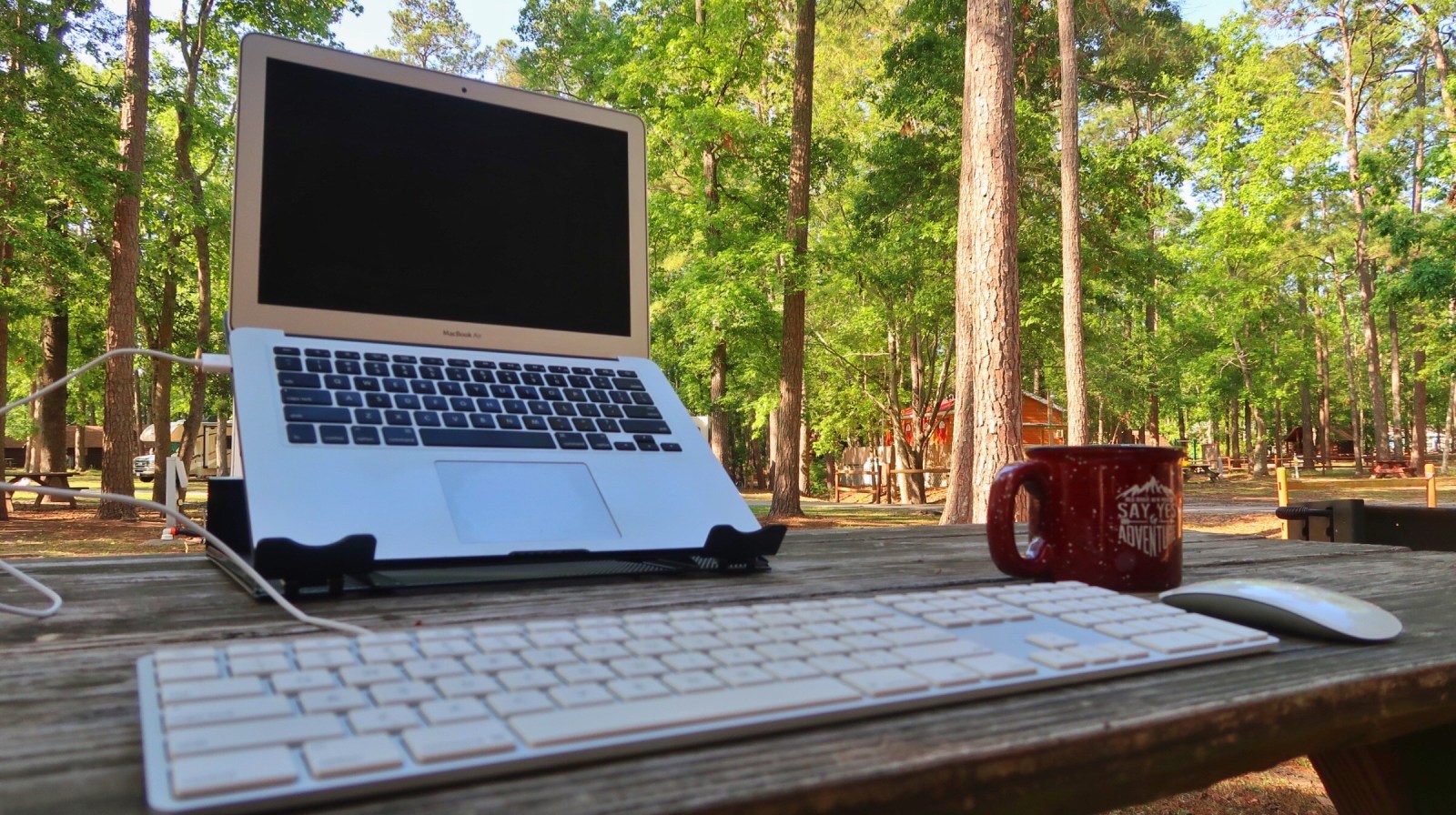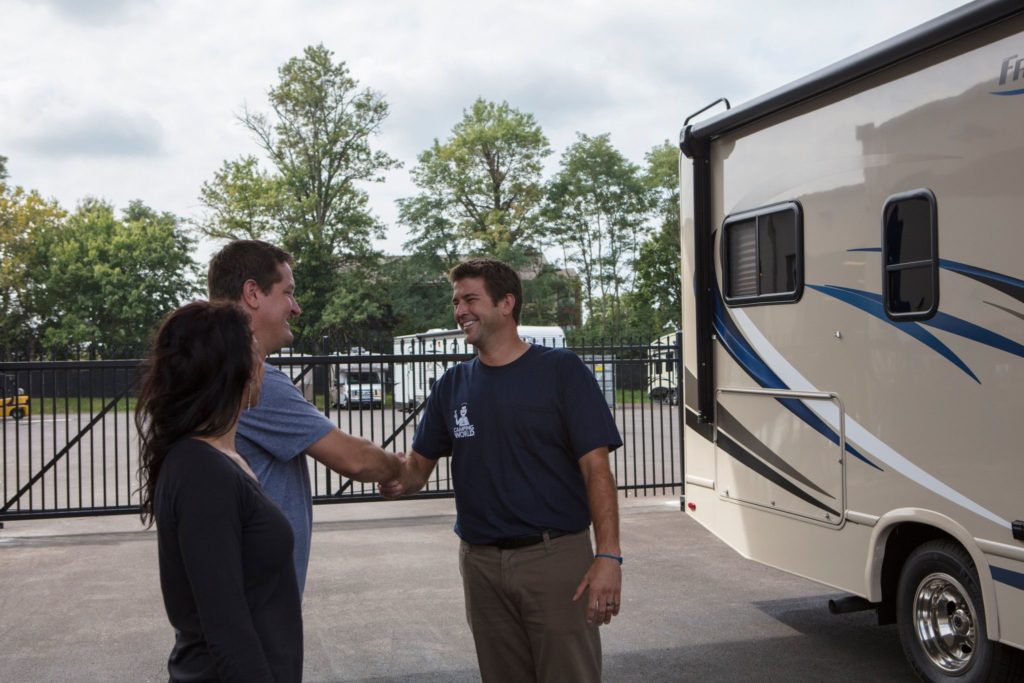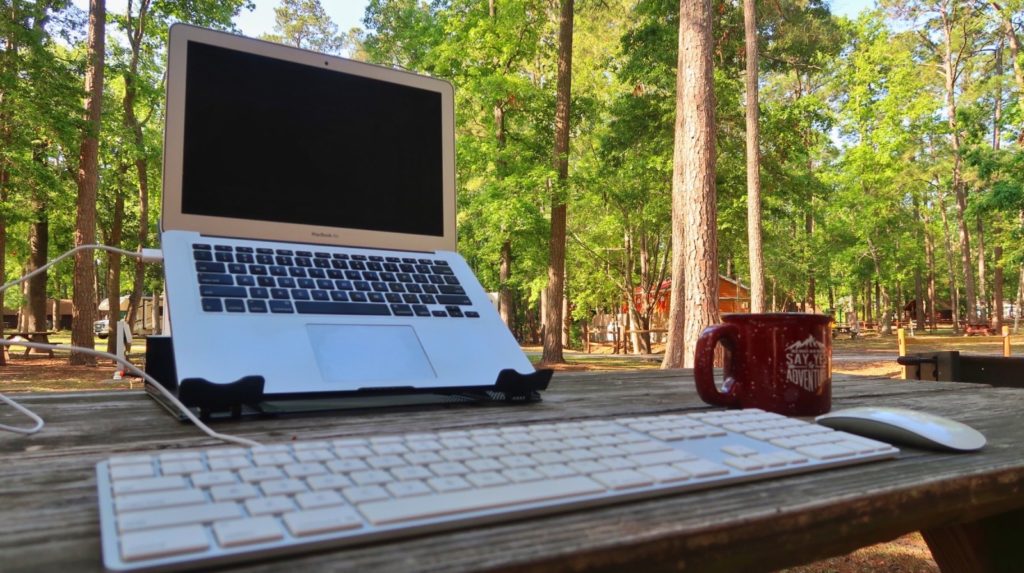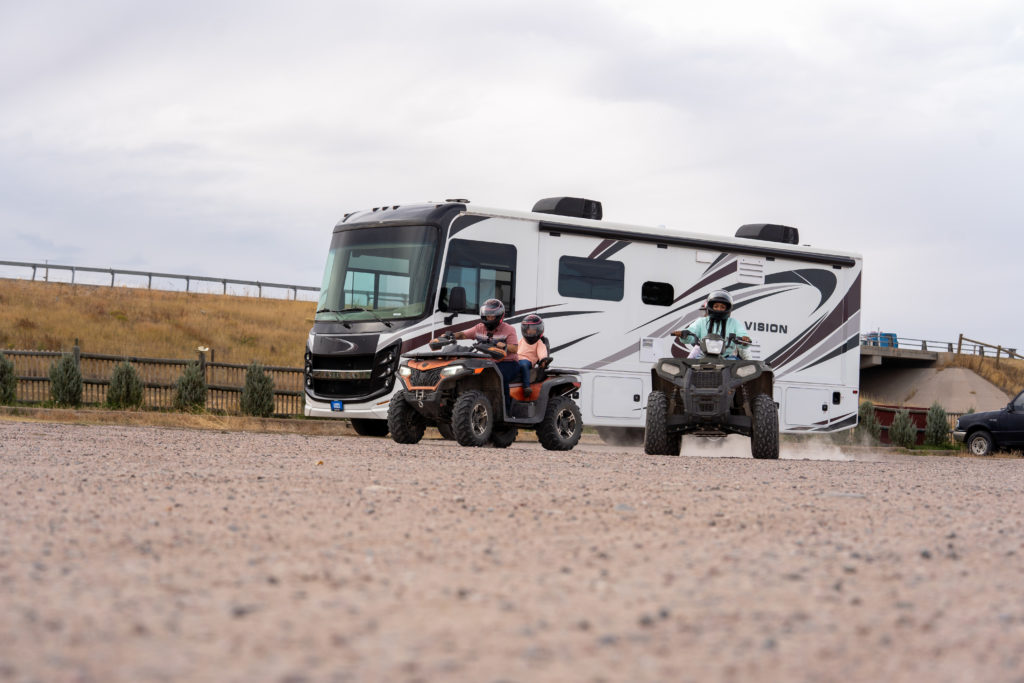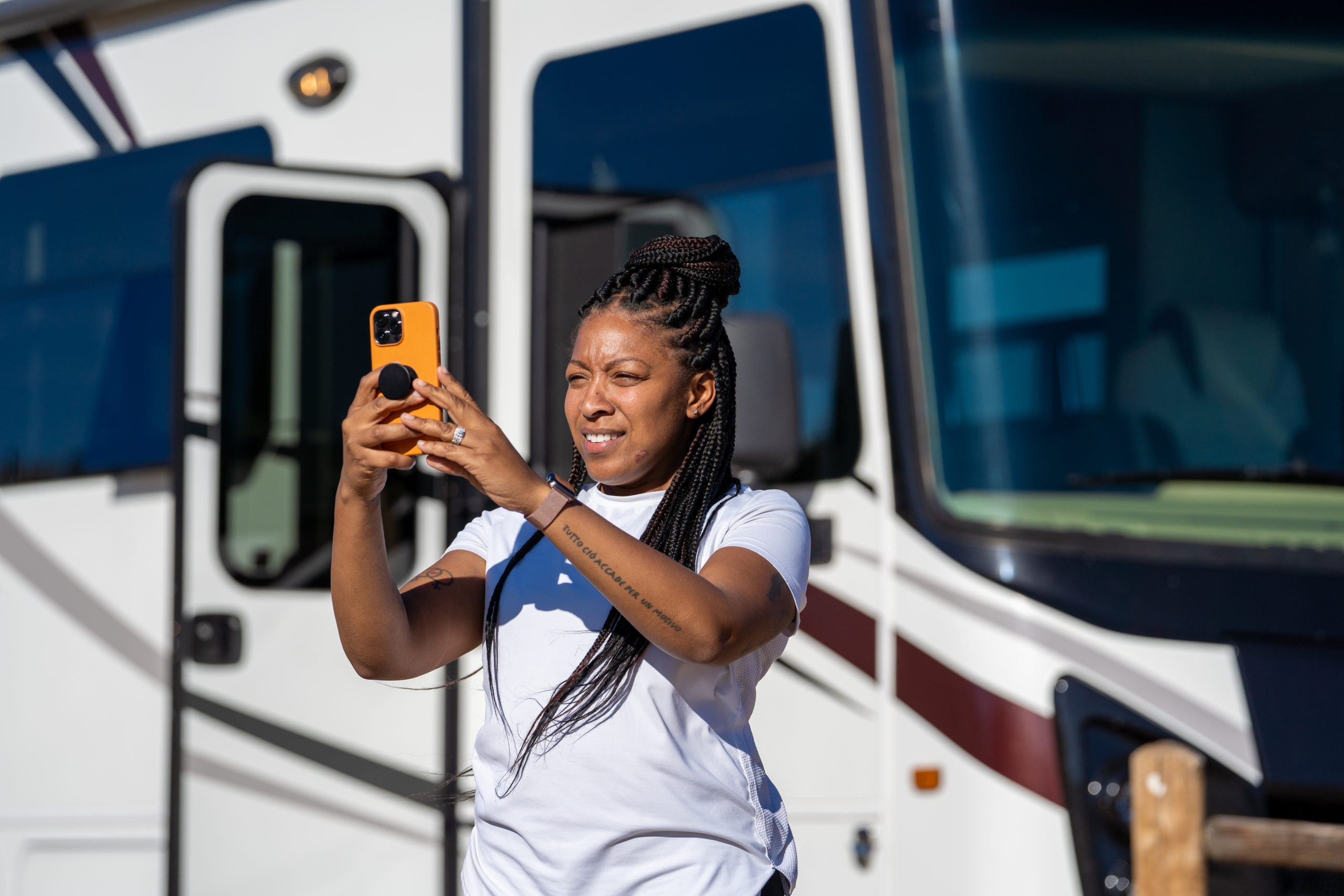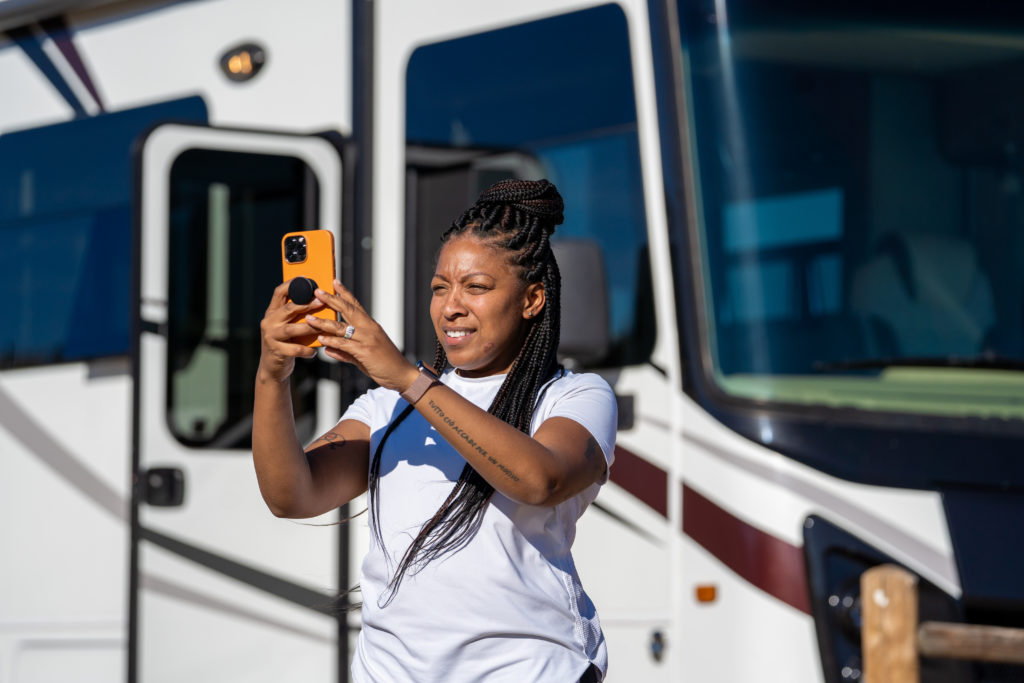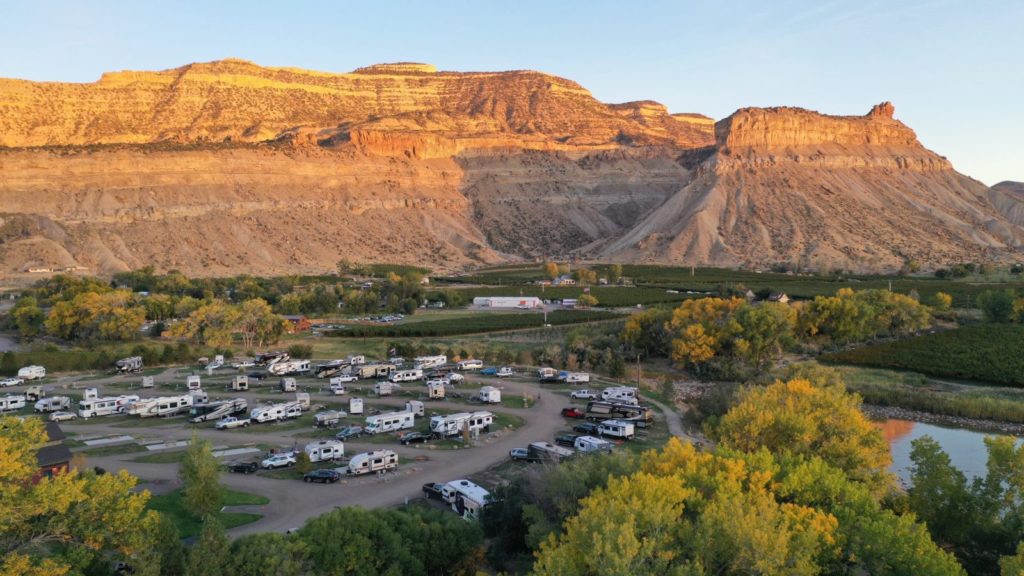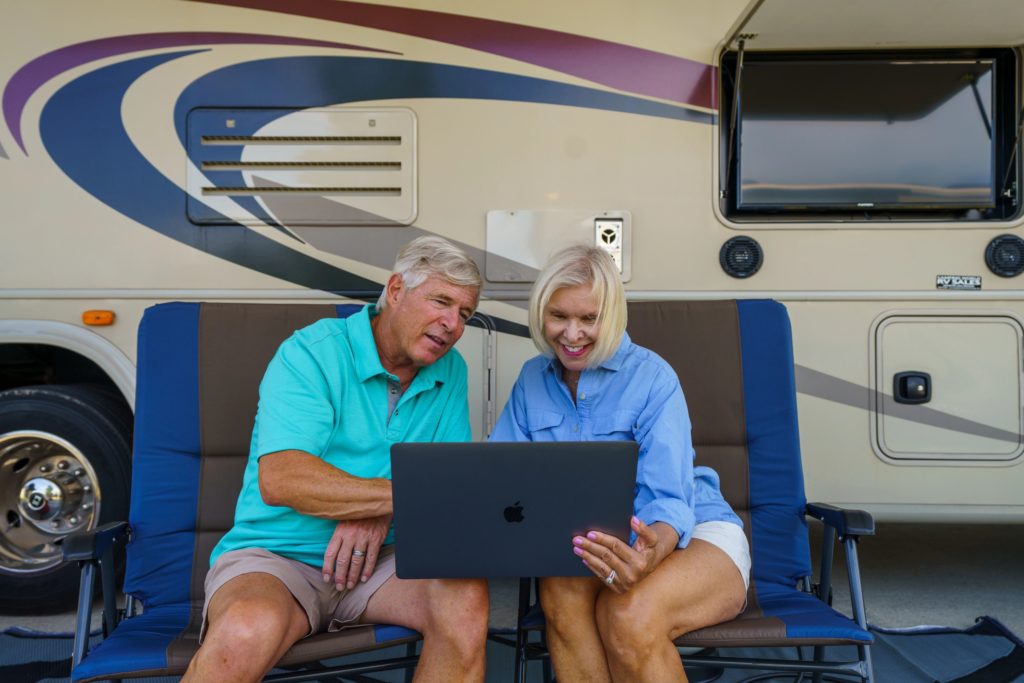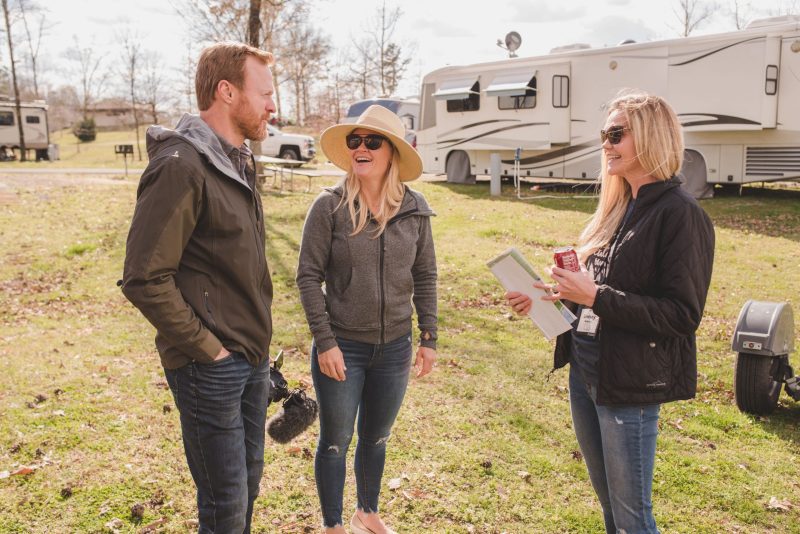
How to start a campground business (in 4 steps).
If you’ve ever found yourself toying with the idea of starting a campground, the cards are in your favor.
As of late 2020, the campground industry reached $8.73 billion, making it one of the few industries that grew in spite of the pandemic. For RV park operators, it’s shown to be a sound investment, with campgrounds like Cypress Trail RV Resort quoting returns between 15 percent and 20 percent.
However, even though it’s a lucrative industry, knowing where to start can feel daunting. How do you design a campground? How much does it cost to operate an RV park? What are the best resources for campground owners?
Fortunately, there are a lot of places to turn for aspiring park operators, and setting yourself up for success is easier than not. So to consolidate your search, here’s how to start a campground business in four steps.

1. Research and design your campground.
Whether you’re buying an established park or building one from scratch, a well-designed campground could be an investment worth hundreds of thousands of dollars. Make sure you start off on the right foot with a clear plan and a reliable team to get your park off the ground.
Visit other parks.
Take it upon yourself to visit other parks and get a sense for what they’re doing well. Jot down a few notes, take pictures, and consider their design. Think through the layout and spacing of their sites, the location of their office, or the ratio of RV slips to tent spots.
Try and build upon what you think they’re doing well, and leave space for improvements. If nothing else, ask questions of other operators and get an idea of what to anticipate.
Find your niche.
At the risk of sounding cliche, every park is unique; and since there’s no “one size fits all” formula, it’s important to identify what type of campground you want to be, and who you want to cater towards.
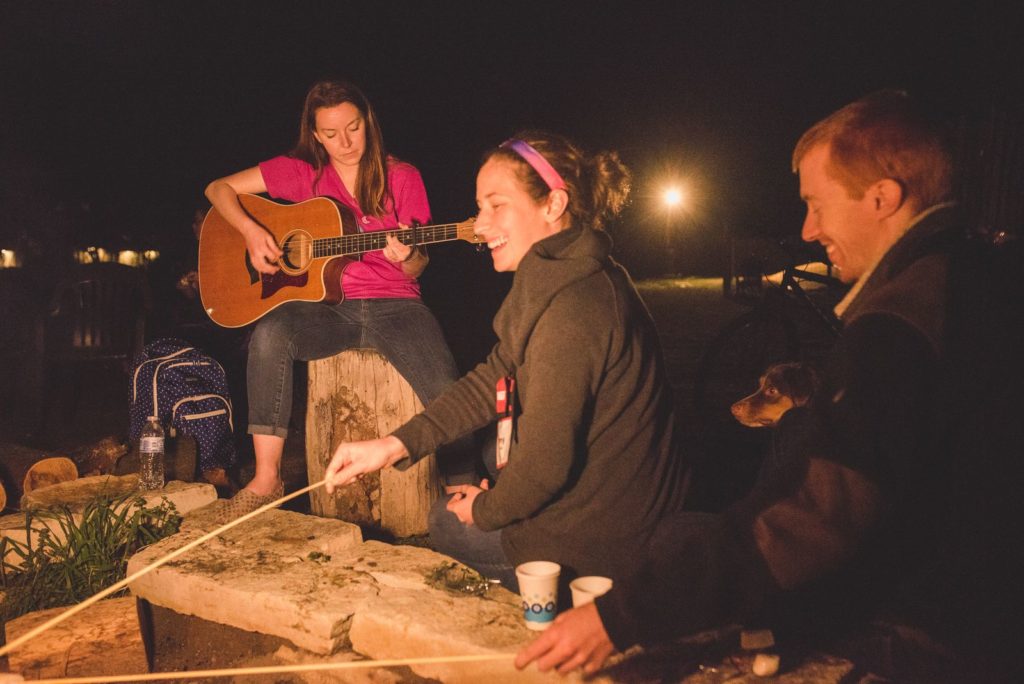
Are you going to focus on seasonal business, or will you cater to weekenders? Do you want to draw in more families, or would you rather not deal with kids? Should you include glamping and tenting options, or will you only cater to full-hookups?
Knowing your market will only help in knowing your design.
Make the right hires.
From idea to execution, surround yourself with the right team of people to give your park the best chance at success.
You’ll need a vetted design group in order to provide a clear path to your vision (as well as prevent costly setbacks), a reliable contractor to serve as a project manager, and a staff that can accommodate your guests and day-to-day operations.
Consider additional variables.
No matter how detailed and thoughtful your plan is, there’s almost always something that pops up along the way. Whether it’s zoning, drainage, or environmental concerns, you’ll need to get as granular as possible and have resources you can count on.
Generally a good contractor will help navigate most hiccups, but it never hurts to have more support. For additional resources, consider joining a local campground association or developing a positive relationship with your zoning board early on in the process.
2. Anticipate costs and procure funding.
Again, owning a campground can be a great investment…so long as you’ve done your homework. Here are a few considerations to ensure the biggest bang for your buck.
Costs to consider.
The cost of running an RV park can vary depending on size, location, construction, or whether or not you’re starting from scratch. That being said, there are usually a few things you can expect.
For example, buying an established park ranges between $100,000 and $2 million, startup costs will run somewhere between $10,000 and $50,000, and cap rates will fall between 8 percent and 11 percent.
To get a ballpark of how much you can anticipate spending, add up your land costs, costs per site (factoring in the number of sites), building costs, and internet installation. From there you’ll have a pretty good idea of what you’ll need, but we also have a more comprehensive list of campground expenses to consider just in case.
Understanding financials.
Michael Elliott, aka the Campground CPA, says that a lot of new owners tend to drop the ball when it comes to properly understanding the financials behind a campground business. To give your park the best shot at success, be sure to study up on the following:
- Capital expenditure budgets – to give you accurate numbers for future developments and expenses.
- EBITDA (earnings before interest, taxes, depreciation, and amortization) – to find the industry-standard value of your campground.
- Owner financing – a loan between the previous owner and the buyer of the campground.
- Biggest expenditures for campgrounds – repairs/maintenance, and wages/salaries.
- Profit and loss statements (P&L) – to see a campground’s cost and revenue during a fiscal year.
- Expense ratios – total percentage of funds used for staff, marketing, and other related expenses.
Check out our conversation with Michael for more financial tips for campground owners.
Reporting and accounting.
Michael also mentioned that a lot of campgrounds fail to adequately record and track how their business is performing, and that “there are a lot of parks with no finances.”
For better forecasting, make sure you invest in a service like Quickbooks as well as a software that can tell you current occupancy, future occupancy, and prepaid deposits.
3. Create a unique campground experience.
The data is out, and 63 percent of consumers seek out experiences that they can’t find anywhere else. That same study listed “inspiration” and “meaning” as two of the most sought-out qualities a business could offer.
With that, here are a few ways your campground could go the extra mile in creating experiences not easily replicable elsewhere.
Invest in WiFi and amenities that guests want.
Before you build that new pool or add a playground, take some time to research what guests want out of their experience. We recently surveyed over 700 RVers asking them to tell us what amenities were most important to them.
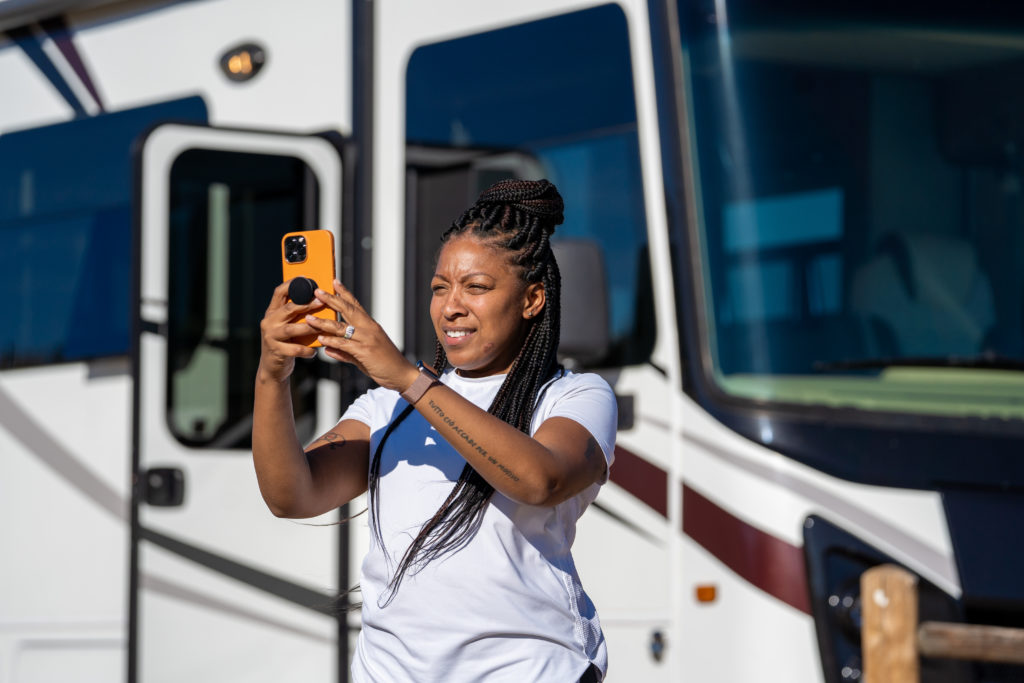
Overwhelmingly, WiFi was considered “essential” (with quite a few RVers saying they’ll even pass on campgrounds that don’t provide adequate internet access), while trees, fire pits, and clean showers also made the top of the list.
The good news (based on our data), is that the most desirable amenities are generally pretty cost-effective, so you shouldn’t have to shell out too much to create a memorable experience for guests.
Provide unique accommodations.
Twenty-five percent of guests factor in a campground’s atmosphere in their decision to stay or return. Adding to that, a study found that “30 percent of North American travelers have glamped in the past two years,” and “59 percent of glampers go with their children, likely because glamping gives families the fun of the outdoors without the stress and hassle of traditional camping.”
Adding to that, it’s estimated a US market for glamping worth as much as $4.8 billion by 2025. This means that yurts, tiny homes, treehouses, or restored vintage campers could all be profitable ways to add a little pizazz to your campers’ stay.
For more inspiration and ideas, check out these 16 options for adding glamping to your campground.
Offer more than just camping.
More and more, owners are finding creative ways to utilize their property beyond just offering RV slips and or tent sites.
From breweries and distilleries like Devils Backbone and Shelter Point, wedding venues like The Hitchin’ Post, to even animal rescues like Discovery Wildlife Park (complete with bears, lions, wolves, and much more), there are a lot of ways to reimagine the use of your property.
Partner with local organizations.
In addition to joining a regional campground association, make it a point to identify local organizations and businesses in your community to bring your park more visibility.
Set up a booth at a festival, partner with a local business or non-profit, attend a trade show, facilitate local Scouts groups, or host community events (like outdoor movie nights or sports leagues).
It goes without saying, but the more your campground engages with the community, the more the community will engage with your campground.
Stay in touch.
Something as simple as collecting emails and reaching out could be one of the most profitable parts of your business.
A recent study that found email marketing is worth an average return of 4,300 percent, and that every $1 spent generates a little more than $44.
Make it a habit of creating mailing lists and collecting guest contacts whenever they book. Send them a thank you for staying, announcements for upcoming events, future discounts, and notes that let you know you’re thinking about them. Just make sure you don’t overdo it and spam them.
Give them the option to stay another day.
If you have extra spots, or the flexibility to move things around, consider giving your guests the option to stay an extra day. According to GuestReady.com, there are a lot of folks “who want to spend a week or two in a city and would prefer not to hop from Airbnb to Airbnb” or campground to campground. Maybe you could even make it a game and comp an extra night if they leave you a review or book in advance for next year.
Set a launch date.
Make the start of your campground a celebration! Just having a launch date can create a boost of revenue right out of the gate.
This past year, Athabasca County was able to take 150 reservations within the first hour, and more than 300 by day’s end. Their manager, Warren Vowel told us that “last year, it would have taken [them] more than 2 weeks and 3 staff members to call back and confirm all of the reservations that came in today.”
It’s not just them, as campgrounds like Lakeview Park are able to book most of their reservations for the year within the first 24 hours of making sites available.
4. Advertise your campground.
While there are a number of ways to market your park well, there are a few easy steps you can take to see results almost immediately.
Invest in quality photos.
We live in a digital age and we live in a visual age.
Websites and articles with quality and relevant photos bring in 94 percent more traffic than those without, yet somehow only 39 percent of online businesses have photos that don’t “disappoint customers.”.
The reason? Well, there’s a few. Quality photos create trust, they make your park standout, and they tell a story.
Fifty-one percent of customers respond better to images of actual people “because they’re more authentic and trustworthy than brand-owned creative.” Guests want to be able to imagine what it’s like to stay at your campground before they actually do, so adding a few eye-catching images could go a long way.
Consider hiring professional photographers, as well as sourcing photos from guests to showcase your parks’ best qualities, and then take time to share them on your website and social channels.
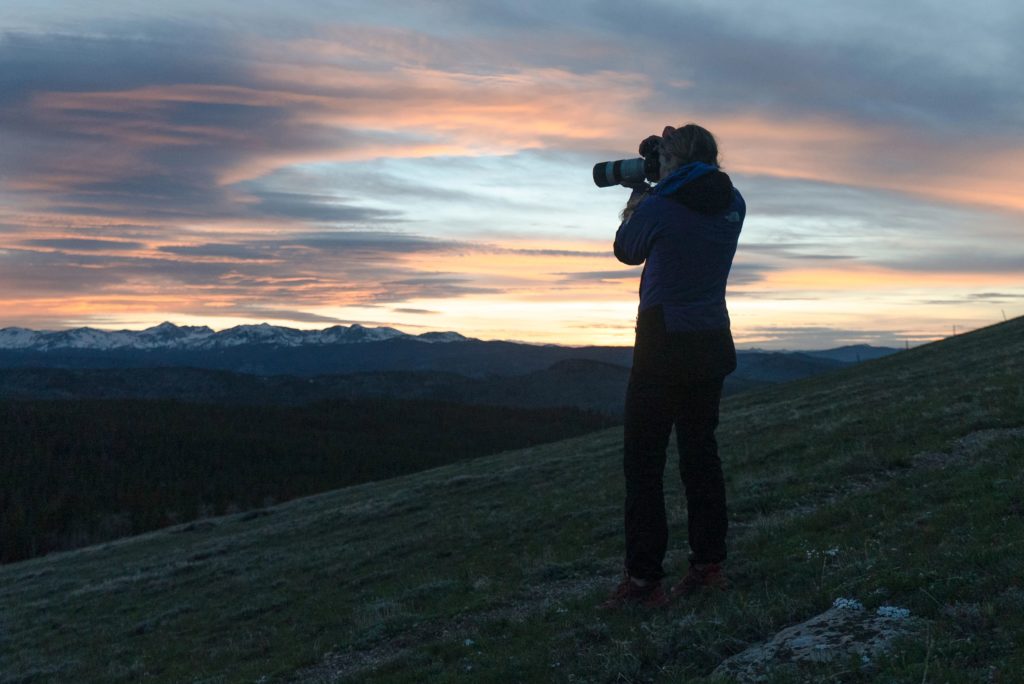
Take online bookings.
If you want to grow your business and audience quickly, taking reservations online is the easiest and most effective strategy.
Phone calls and emails add up but, thanks to online reservations, our campgrounds save an average of 300 hours a year in administrative tasks, while bringing in an added 25 percent in yearly bookings.
Plus, membership programs like Good Sam grant access to features like trip planners, targeted searches, and can even account for more than half of some parks annual reservations.
Run paid ads on Google and Facebook.
The reality is that most of your (potential) guests are searching for RV parks online. Forbes says that “97 percent of consumers use the internet to find local businesses.” This means that campgrounds investing in pay-per-click advertising (PPC ads) will likely have better success than campgrounds who don’t.
Specifically, our campgrounds have gotten the most bang for their buck running ads through Google and Facebook. For context, Moz’s Brian Carter, says that, on average, it costs between $20 and $32 to reach 1,000 people in print ads, Google AdWords and Facebook can do the same for about $3.
Furthermore, there are currently at least 246 million unique Google users in the States alone, and targeted ads allow you to tailor to specific audiences to ensure the highest return possible.
Respond to reviews.
For better or worse, reviews matter.
Currently, about 92 percent of consumers read online reviews and make their decisions to stay accordingly. To give this some more teeth, a study found that campgrounds with 1 to 1.5 stars bring in 19 percent less revenue than other parks.
Now, it’s certainly worth stating that even great campgrounds receive unfavorable reviews, and to some extent that’s unavoidable. However, you can still mitigate damage and turn negative comments into positive interactions by making it a point to respond and (thoughtfully) engage with disgruntled guests.
By promptly connecting, empathizing, and doing what you can to make things right, 95 percent of unhappy guests will return to your campground. Even responding to happy guests has a direct impact on the bottom line, considering parks benefit from 4.6 percent more reservations for every 50 positive reviews your campground receives.
As you grow your campground be sure to keep an eye on these review sites, and make a genuine effort to kindly connect with guests regardless of their experience.
It’s a good time to start a campground.
There’s never been a better time to operate an RV park. The outdoor industry is growing faster than ever, and people are ready to create memorable experiences.
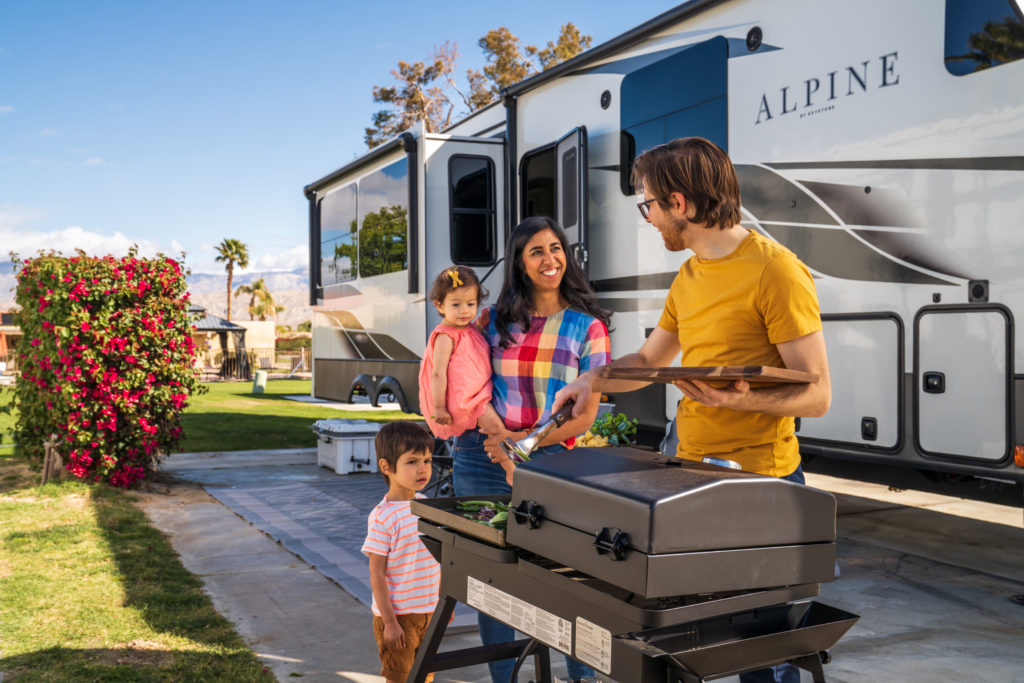
To ensure your campground’s success, be sure to take time to:
- Research and design your campground.
- Anticipate expenses and understand your park’s finances.
- Create unique experiences for guests.
- Advertise your campground.
Looking to get started?
Taking online reservations is an easy way to offload administrative work and allow you to focus on the things that make your park unique. If you’re ready to make the jump, Good Sam Campground Solutions can help. Request a demo today!
